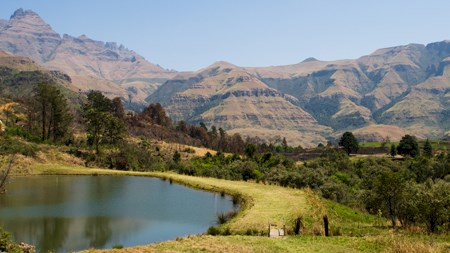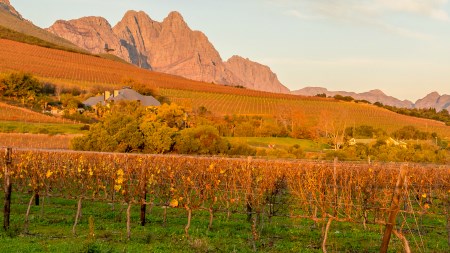Nothing brings a community together like a perceived threat to their environment, water sources, lifestyle, and properties by outsiders.
Summing up life for those who live in the KwaZulu-Natal Midlands is easy. They’ve chosen to live here because, as one community member said unequivocally,
It’s an idyllic lifestyle unparalleled elsewhere
Country property owners consist of farmers and smallholders, while the tourism industry has mushroomed along well-established craft routes with spinoffs of hospitality, wedding venues and more. But while livelihoods may stem from a variety of sources, there’s a commonality of vision and purpose which communities will defend vigorously.
Enter Rhino Oil & Gas Exploration SA, a privately owned company (parent company Rhino Resources of Dallas, Texas), which has been granted exploration rights to drill holes on 10,000 farms covering a 1,5 million hectare span in pursuit of untapped reserves of oil, gas, methane or helium. Farmers fear that if any are found, the controversial hydraulic rock fracturing (fracking) method would be used to extract them, impacting irreversibly on the province’s water resources and scarring the landscape with oil rigs.
Rhino’s meetings with local communities haven’t gone well. Most were aborted because of its (and its environmental consultancy, SLR Consulting) shoddy preparation, worrying credentials, and underestimation of the intensity of local reaction to this invasion of their paradise, livelihoods, lifestyle, and legacy. Many residents are extremely well informed about laws pertaining to farmlands, and are privy to the environmental conversation worldwide condemning fracking. The drought in KwaZulu-Natal has been brutal, and for a farming community, the far-reaching effects of water contamination are unthinkable.
The locals are passionate about their environment, and are active participants in numerous conservancies. Sarah Allan chairs the Curry’s Post Conservancy, and, among other issues, raises two points in her letter of objection relating specifically to property values: “The application over such a vast tract of KZN has introduced an intolerable measure of uncertainty to an already stressed agricultural community. Any landowner wishing to sell his/her property now in the wake of this application is unlikely to realise the full value of their property due to the threat of exploration and extraction hanging over the property.”
She adds, “The possibility of core sampling disrupting underground water pathways needs to be discussed and fully understood. All property owners and members of the Curry's Post Conservancy are reliant on springs and boreholes for their water supply for domestic, crop and livestock purposes and any change of rock strata could re-direct ground water away from these crucial water resources and sources which would render affected properties useless for agriculture, residential or any other purpose.”
Bottom line, this exploration will have a massive ripple effect on every aspect of the lives of the numerous and varied communities who live here, including property values.
This article originally appeared in Neighbourhood, Sunday Times.



